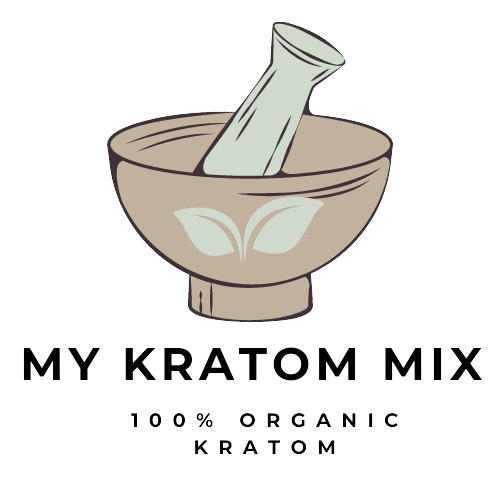Kratom (Mitragyna speciosa) is a tropical evergreen tree native to Southeast Asia, particularly thriving in Thailand. Known locally as "krathom," the plant has been used for centuries by Thai communities for its medicinal and psychoactive properties. This blog explores the deep-rooted history of kratom in Thailand, highlighting its traditional uses, cultural significance, and the legal and social challenges it faces.
Ancient Origins and Traditional Uses
The history of kratom in Thailand dates back hundreds, if not thousands, of years. Indigenous communities in the southern regions of Thailand, where the climate and soil conditions are ideal for kratom growth, have long used the leaves for their beneficial effects.
- Medicinal Uses: Traditionally, kratom leaves were chewed or brewed into tea to alleviate pain, treat digestive disorders, and combat fatigue. Laborers, especially those working long hours in the fields, found kratom particularly useful for its energy-boosting and pain-relieving properties.
- Social and Cultural Uses: Beyond its medicinal applications, kratom played a role in social and cultural practices. It was often consumed during social gatherings, religious ceremonies, and as part of traditional healing rituals.
Cultural Significance
Kratom’s significance in Thai culture cannot be overstated. It has been a part of traditional Thai medicine, or "pharmacy of the people," where natural remedies are preferred over synthetic drugs. The plant’s alkaloids, primarily mitragynine and 7-hydroxymitragynine, are believed to provide a range of benefits, from pain relief to mood enhancement.
In rural areas, kratom has been a staple in daily life, used to manage common ailments and enhance productivity. Its role in community bonding and social rituals also highlights its cultural importance. Despite modern developments, many Thai people still turn to kratom as a natural alternative to pharmaceuticals.
Colonial and Post-Colonial Influence
During the early 20th century, Thailand saw significant changes under both colonial and post-colonial influences. The rise of the pharmaceutical industry and Western medical practices began to overshadow traditional remedies, including kratom.
In the 1940s, Thailand faced economic challenges that led to increased opium addiction. In response, the Thai government implemented measures to control opium use and promote kratom as a less harmful alternative. However, the situation changed dramatically in 1943 when kratom itself became a target of regulation.
The Kratom Act of 1943
In 1943, the Thai government passed the Kratom Act, making it illegal to grow, possess, or sell kratom. The law aimed to reduce competition for the opium market, which was heavily taxed and regulated. This move criminalized a plant that had been a part of Thai culture for centuries and led to significant legal and social repercussions.
- Enforcement and Impact: The ban forced many traditional users and farmers to abandon kratom cultivation. Despite the prohibition, kratom use persisted, especially in rural areas where access to alternative medicines was limited. Enforcement of the ban varied, with some regions experiencing stricter controls than others.
Modern Challenges and Legal Landscape
In the decades following the ban, kratom continued to be used illicitly by Thai communities. The legal landscape remained complex, with periodic crackdowns and inconsistent enforcement. However, the global interest in kratom's potential benefits, particularly as an alternative to opioids, has led to renewed discussions about its status in Thailand.
- Recent Developments: In 2018, Thailand took a significant step by legalizing medical marijuana, sparking hope among kratom advocates for a similar reconsideration. By 2021, the Thai government officially decriminalized kratom, recognizing its traditional uses and potential economic benefits. This shift marked a turning point, allowing for regulated cultivation, sale, and use of kratom within certain guidelines.
Economic and Social Impact
The decriminalization of kratom has had profound implications for Thai society and economy. For many farmers, it represents a return to traditional agriculture and a new source of income. The legal cultivation and export of kratom have the potential to boost local economies, particularly in rural areas where economic opportunities are limited.
- Economic Benefits: Legal kratom farming offers a sustainable livelihood for smallholder farmers. The global demand for kratom, driven by its use in natural health products, provides a lucrative market for Thai producers.
- Social Acceptance: The decriminalization has also led to greater social acceptance of kratom use. Traditional users can now consume kratom without fear of legal repercussions, and public health initiatives can focus on education and harm reduction.
The Global Perspective
Thailand's decision to decriminalize kratom has positioned it as a key player in the global kratom market. The country’s rich history with the plant, coupled with its reputation for quality agricultural products, makes Thai kratom highly sought after internationally.
- Export Potential: As global interest in kratom continues to grow, Thailand's ability to produce and export high-quality kratom can drive economic growth. The country’s expertise in agriculture and its favorable growing conditions further enhance its competitive edge.
Conclusion
The history of kratom in Thailand is a testament to the plant's enduring significance in traditional medicine and culture. From its ancient roots to its modern resurgence, kratom has been a part of the Thai way of life for centuries. The recent decriminalization marks a new chapter, allowing Thailand to embrace its heritage while contributing to the global natural health movement.
For businesses and consumers alike, understanding the historical and cultural context of kratom in Thailand adds depth and appreciation for this remarkable plant. By supporting sustainable and ethical kratom practices, we can ensure that this valuable resource continues to benefit communities in Thailand and around the world for generations to come.

